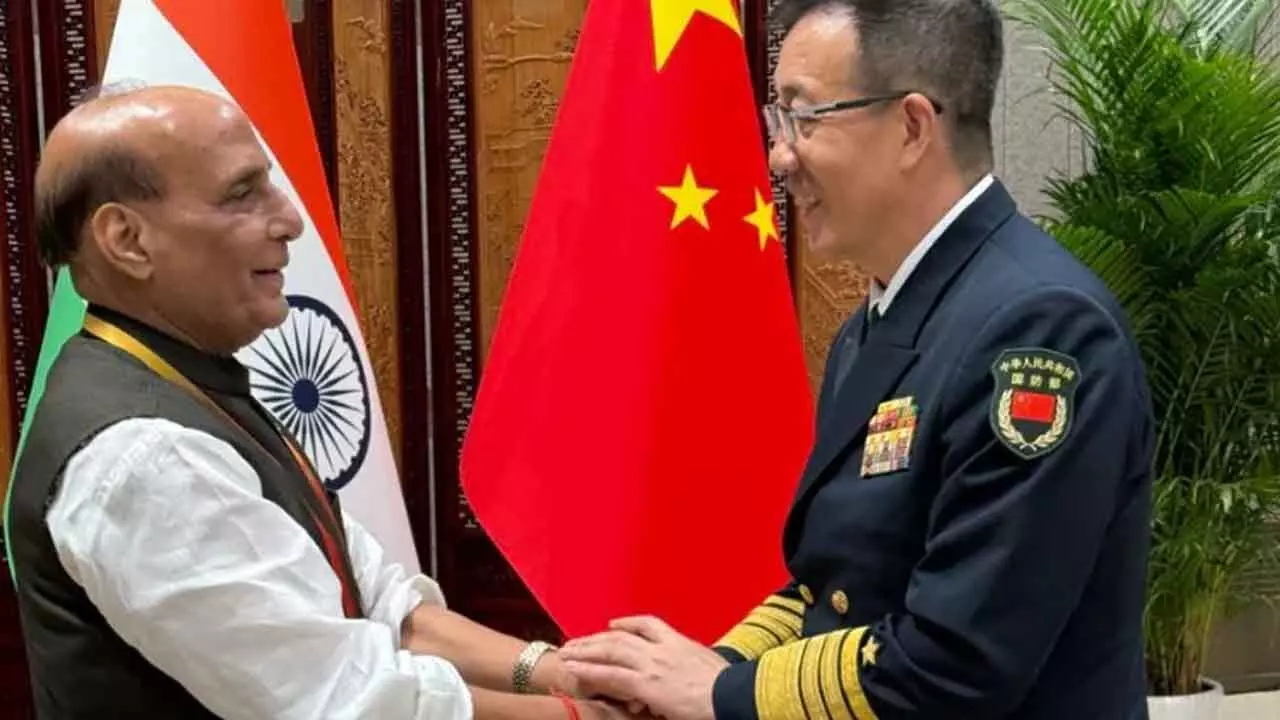India to China: Respect Our Right to Self-Defense, Resolve Border Dispute Permanently
Discover how India is urging China to respect its right to defend against terror and work towards a permanent solution for the ongoing border dispute. This article delves into the recent high-level talks and India's four-point plan for peace
India to China: Respect Our Right to Self-Defense, Resolve Border Dispute Permanently

In a significant move to reset strained ties, India has urged China to not only work constructively towards a lasting resolution of their lingering border dispute but also to acknowledge and respect India's sovereign right to defend itself against cross-border terrorism. This direct message was delivered by Defense Minister Rajnath Singh to his Chinese counterpart, Admiral Dong Jun, on the sidelines of the Shanghai Cooperation Organisation (SCO) conclave. The candid exchange comes amidst a five-year standoff with both armies remaining heavily deployed along their shared frontier.
Bridging the Trust Deficit: A Call for Permanent Solutions
Defense Minister Singh emphasized the urgent need for a "permanent solution" to the border issue. He called for a structured roadmap aimed at rebuilding trust, de-escalating tensions, and revitalizing existing mechanisms for border demarcation. This new push for "permanent" resolution underscores India's desire to definitively close a chapter of decades-old uncertainty.
India's Stance on Terror: A Principled Approach
During the hour-long meeting, Minister Singh brought up the "heinous" Pahalgam massacre and India's subsequent Operation Sindoor against terrorist networks in Pakistan. He firmly told Admiral Dong that Beijing must understand and respect India's "principled approach" to defending itself against terror emanating from across the border, specifically mentioning Pakistan-sponsored terrorism.
This conversation gains particular relevance given recent reports of Pakistan's use of advanced Chinese weaponry, including J-10 fighters and PL-15 beyond-visual-range missiles, during cross-border hostilities in May. Furthermore, there are indications of continued military collaboration, with China reportedly planning to supply Pakistan with J-35A fifth-generation stealth jets and HQ-19 long-range air defense missile systems. Singh stressed that both nations should "avoid adding new complexities" to their bilateral relationship.
A Four-Point Plan for Peace and Progress
While the border dispute remained central, the discussions primarily focused on maintaining peace and tranquility along the 3,488-km Line of Actual Control (LAC). Minister Singh outlined a comprehensive four-point plan to steer the overall relationship towards an upward trajectory:
Strict Adherence to Disengagement: Both sides must strictly adhere to the plan that led to troop disengagement at the remaining face-off sites in Depsang and Demchok in eastern Ladakh last October. This crucial step has already reduced the risk of inadvertent escalation, and the focus must now shift to the next phases of de-escalation and de-induction of troops from forward deployments.
Accelerated Demarcation and Delimitation: India urged accelerated efforts to achieve the critical goals of demarcation and delimitation of the border.
Strengthening Existing Mechanisms: Concrete progress must be made within the existing Special Representatives (SR) level mechanism to achieve a fair and mutually acceptable solution to the boundary question and other related issues.
Moving Beyond the Past: Minister Singh candidly stated that India and China should not remain "stuck in the past." He called for tangible actions on the ground to bridge the trust deficit that emerged after the 2020 border standoff.
Officials confirmed that the two ministers concurred on the importance of continuing consultations at various levels to advance discussions on disengagement, de-escalation, border management, and ultimately, delimitation through existing channels. This forward momentum in bilateral ties has been building since National Security Advisor Ajit Doval and Chinese Foreign Minister Wang Yi engaged in discussions under the SR mechanism in Beijing last December, marking the first such interaction since 2019.

